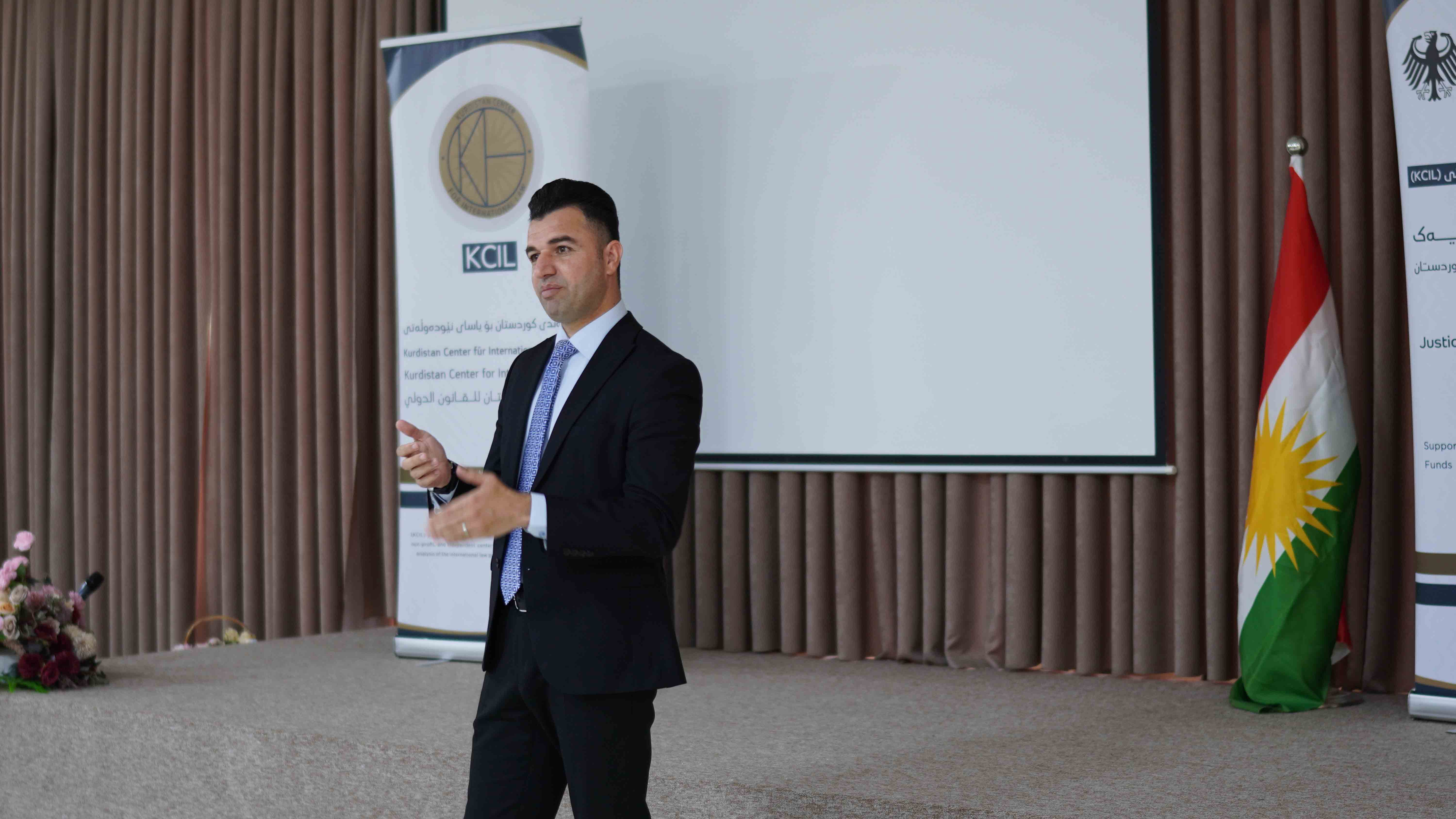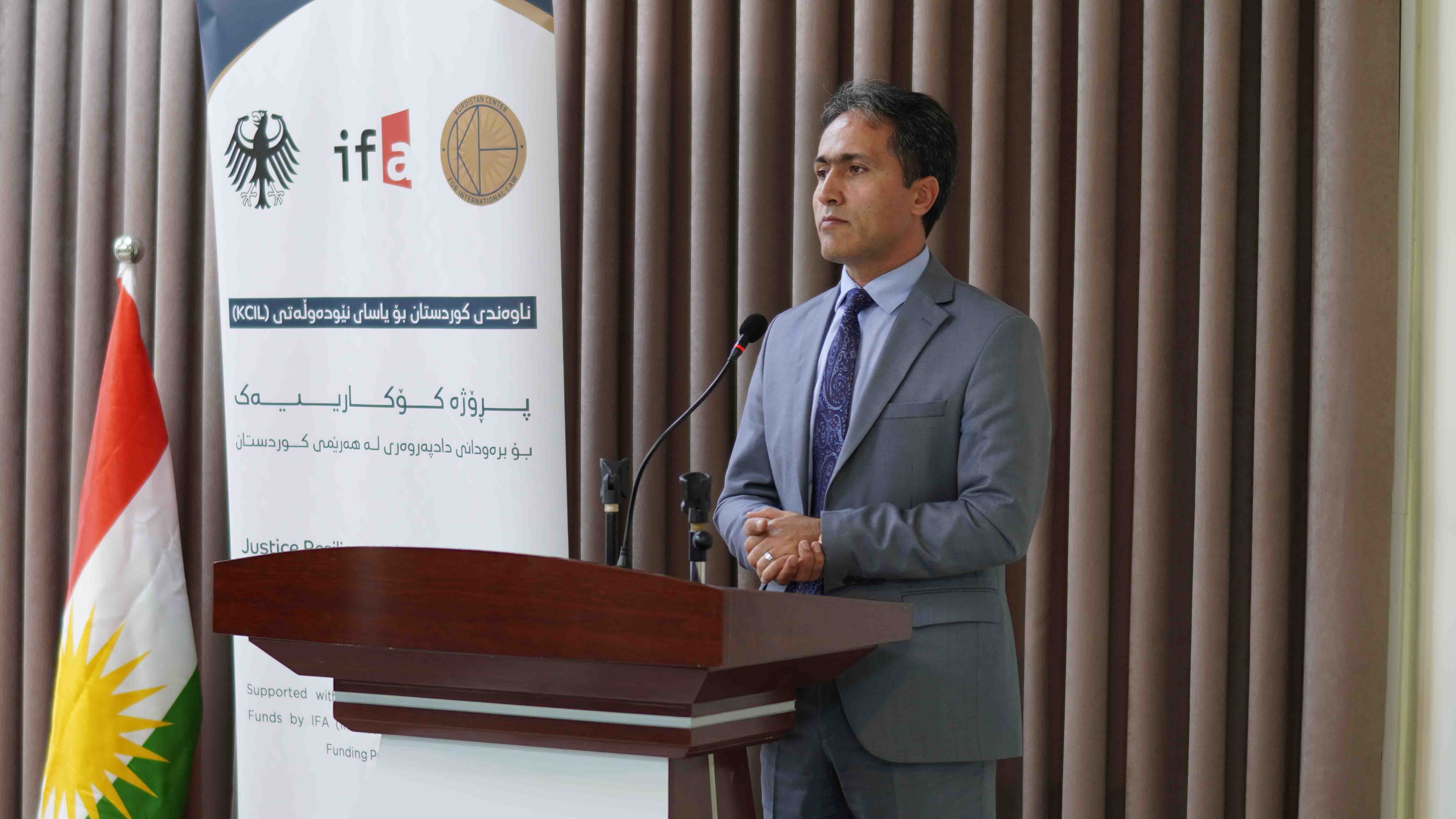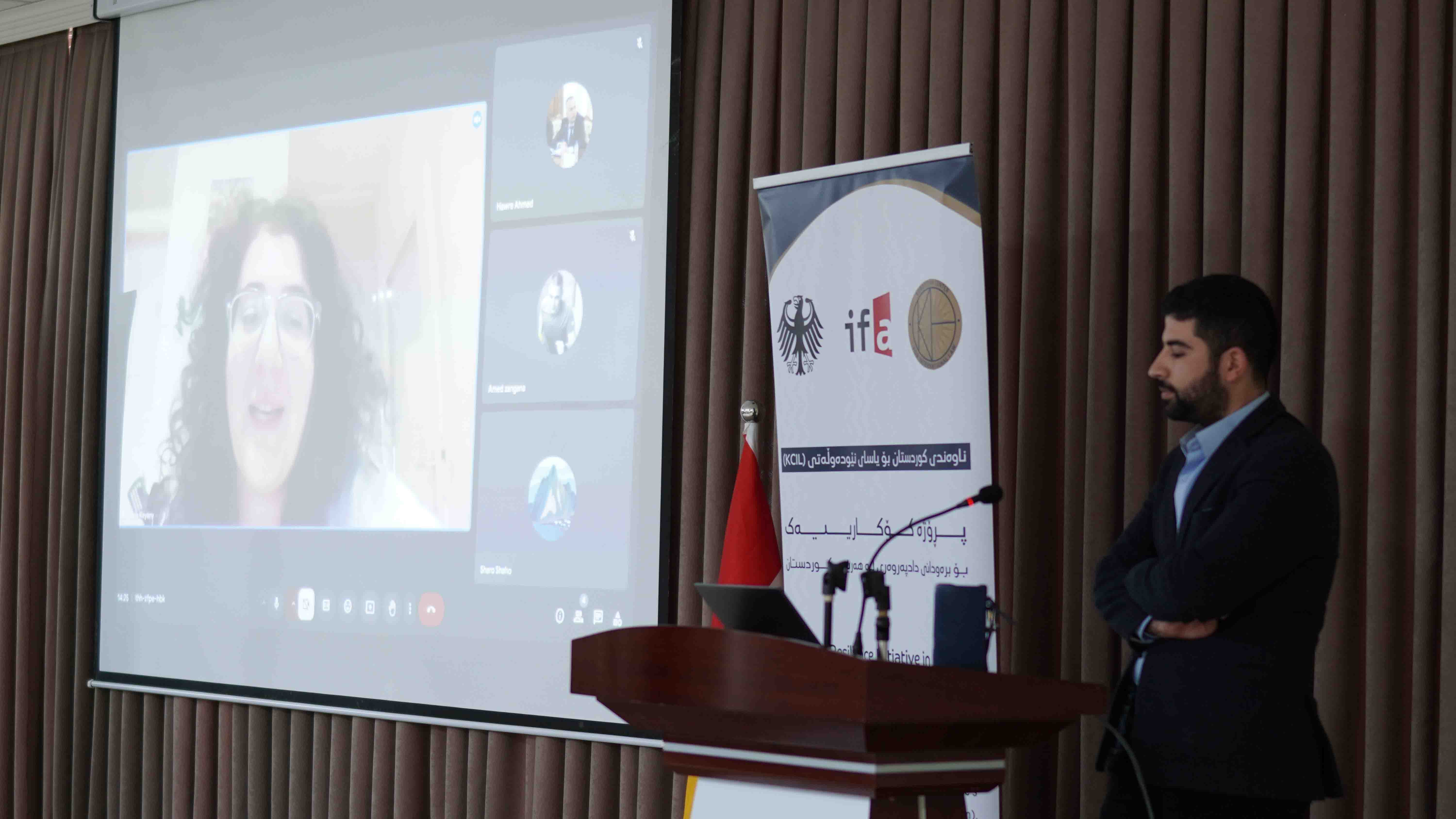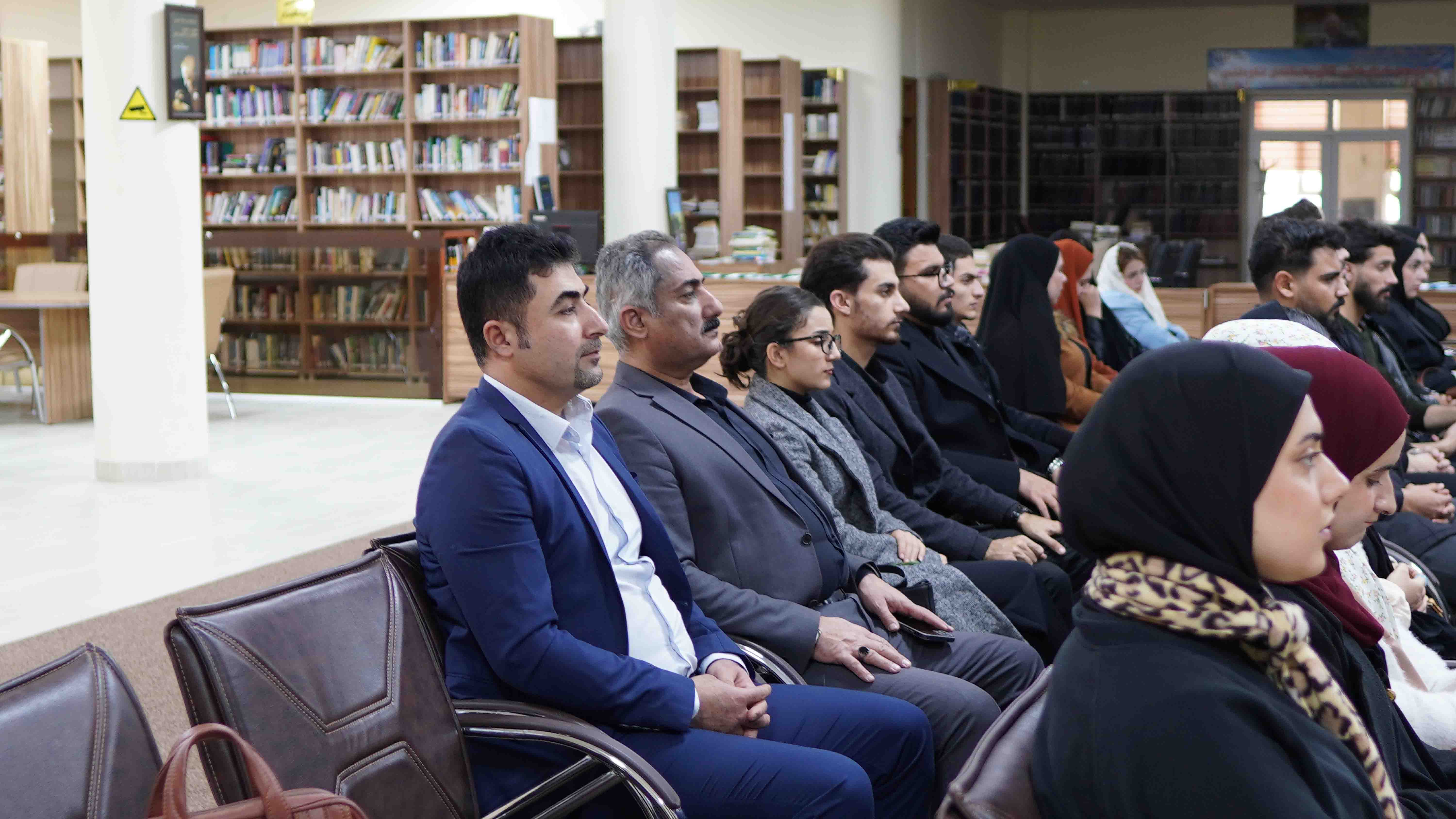The KCIL extended several legal lessons for law students
at Soran and Halabja universities. In light of the entrenched framework that
the KCIL has solidified with KRI universities under the Justice Resilience
Initiative in the Kurdistan Region (KRI), this project is funded by the German Ministry of Foreign Affairs via Institut für Auslandsbeziehungen (IFA). This partnership with the KRI universities aims to educate
law students and familiarize them with international law. In this context, the
KCIL has launched a new initiative offering several lectures on international
criminal law, concentrating on how to prosecute international crimes at Soran
and Halabja universities. The first lecturing series was held at Halabja
University on November 26-27. On the first day, more than sixty students
attended the lectures, and the Dean of the College of Law and Administration of
Halabja University, Dr. Awara Hussein, delivered a decisive presentation on war
crimes and genocide. This was complemented by a detailed account of the
international tribunals set up to prosecute war criminals and perpetrators of
genocide, framed within the judicial outlook shaped by international jurists.
In the afternoon of the same day, Professor Mohammed Rashid introduced the
students to the significance of domesticating international criminal law within
the Kurdistan Region. The lectures on the second day were focused on deepening
students' understanding of the pathways through which they can gain more
familiarity with international criminal law. Dr. Tawana Hussein guided the
students on how to analyze and interpret the provisions of international
criminal law, using several specific cases where justice had been served as
examples. Next, Ms. Zhila Kiani, an expert from the Yazidi Law Network,
introduced the students to the latest legal developments concerning the
prosecution of a member of the terrorist organization ISIL (Husna A.) in the
Dutch Criminal Court. The final lecture of this experience, delivered by Dr.
Ebad Rohi, focused on individual criminal responsibility. During this session,
students were introduced to the most recent legal perspectives and debates
surrounding criminal responsibility, both at the individual and state levels,
within the context of the International Criminal Court and special tribunals.
Thus, the KCIL aims to acquaint law students with the
latest advancements in international law, particularly in international
criminal law and international humanitarian law. It is essential for students
to develop the habit of engaging with international law beyond the formal
curriculum, fostering a legal perspective that encourages innovation and
reform. This will contribute to strengthening the legal and judicial systems in
the KRI, ultimately enhancing the rule of law and promoting crisis prevention.







